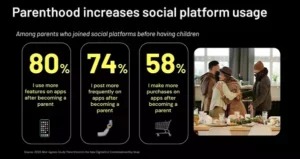In a world saturated with gadgets that prioritize speed and efficiency, the true allure of digital devices often lies in their capacity for elevating our daily rituals. The recent unveiling of Montblanc’s Digital Paper epitomizes this philosophy, transcending mere utility to become a symbol of refined taste and exclusivity. Unlike typical tablets focused solely on
In recent years, the spotlight on Big Tech’s unchecked dominance has intensified, and the latest chapter in this ongoing saga underscores the urgent need for systemic reform. The U.S. Department of Justice’s call for Google to divest its advertising exchange platform marks a pivotal moment in the push against monopolistic practices that stifle competition and
Meta’s latest innovation, the Ray-Ban Display glasses, marks a pivotal moment in the evolution of wearable technology. With a price tag of $799, these glasses are not just another gadget; they represent a strategic step towards a future where augmented reality (AR) becomes seamlessly embedded into our daily lives. Unlike traditional smart glasses that merely
The idea of relocating data centers into space captivates the imagination and challenges long-held assumptions about data storage and processing. Conventional wisdom suggests that Earth’s infrastructure—particularly terrestrial data centers—is cost-effective, efficient, and easy to maintain. However, underlying this belief are significant limitations that are often overlooked. The notion of moving data centers beyond our atmosphere
In a landscape dominated by legacy giants and fragmented workflows, Navan emerges not just as another player but as a visionary force poised to transform the business travel ecosystem. The company’s decision to go public isn’t merely about tapping into capital; it’s a declaration of confidence in a market craving disruption. With a strong foothold,
In an era where the gaming landscape continually pushes the boundaries of creativity, the upcoming title “Penguin Colony” boldly defies conventions. It dares to combine elements as disparate as Antarctic wildlife and cosmic horror, crafting a narrative where penguins are no longer mere flightless birds but vital players in a fractious, Lovecraftian universe. Unlike typical
Artificial Intelligence continues to redefine our digital landscape, promising innovation and convenience. Yet, beneath its shiny surface lies a tangled web of ethical concerns, especially when it comes to how AI models are trained. Companies like Meta are pushing the boundaries of AI capabilities, aiming to develop “superintelligences” that can understand and manipulate vast amounts
In recent years, artificial intelligence has transcended its initial role as a mere tool, evolving into autonomous agents capable of performing complex tasks with minimal human oversight. Companies and users alike herald these AI agents as revolutionary—promising to streamline workflows, save time, and unlock unprecedented productivity. However, beneath this veneer of convenience lurks a darker
Meta’s recent announcement of its Wearables Device Access Toolkit signifies a pivotal moment in the evolution of wearable technology. Rather than remaining insular, Meta is actively opening its AI glasses platform to external developers, signaling a strategic move toward fostering a vibrant ecosystem of third-party innovation. This bold step transforms Meta from a closed hardware
In an era where technology increasingly infiltrates our personal spaces, the concept of home security has taken a remarkable leap forward. The advent of AI-powered cameras and smart detection systems is transforming the traditional passive security measures into active guardians. An innovative device, such as a camera-equipped cat flap capable of computer vision, exemplifies this














